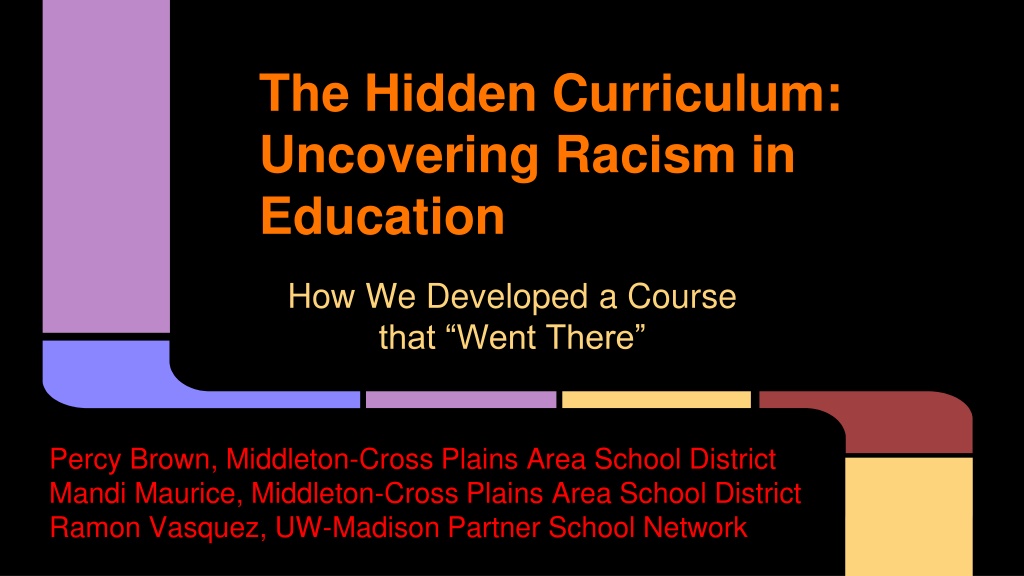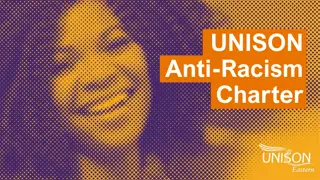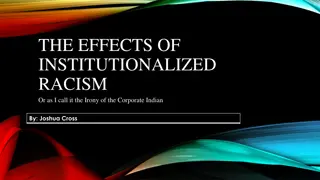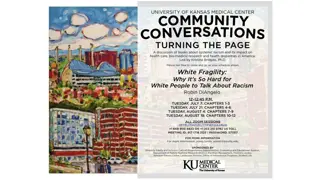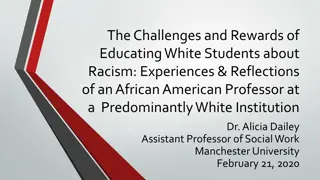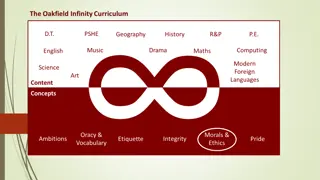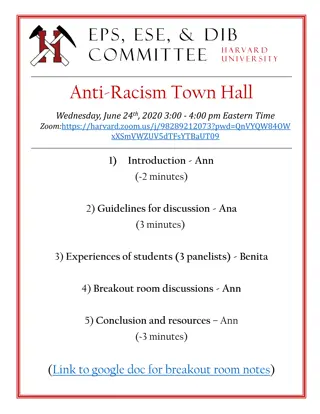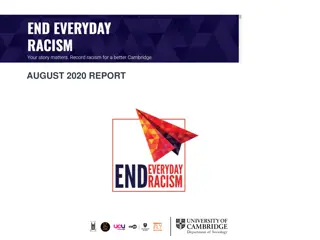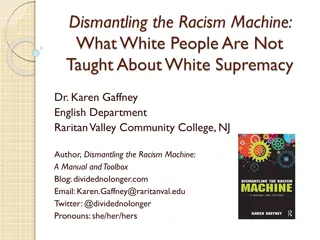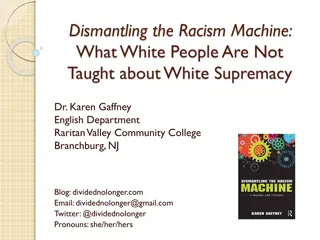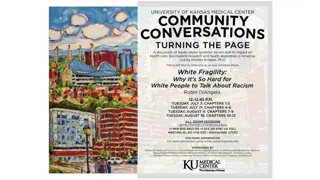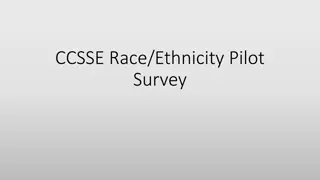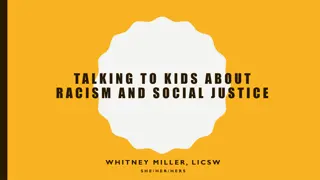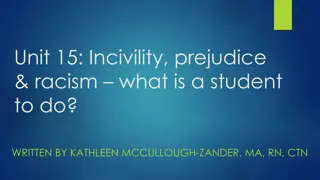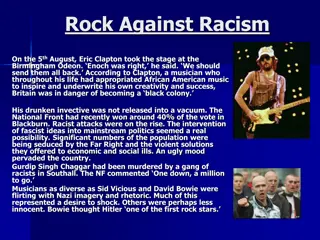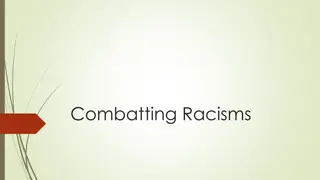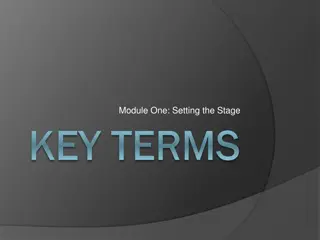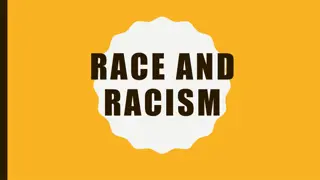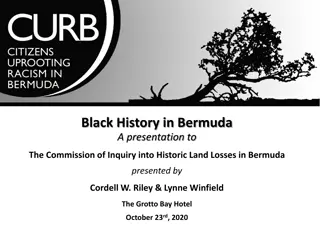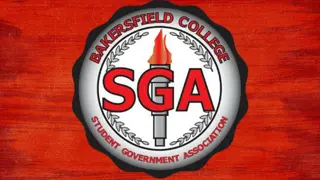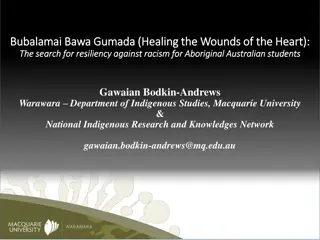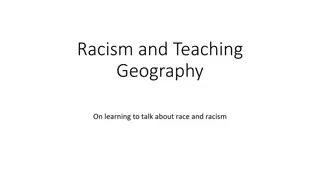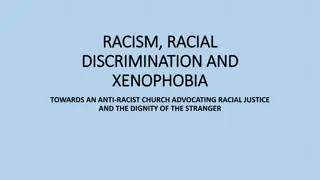Uncovering Racism in Education: Developing a Transformative Course
Explore how a partnership between Middleton-Cross Plains Area School District and UW-Madison developed a course aimed at addressing racial equity in education. The course structure, content, and outcomes are highlighted, showcasing the impact on participants' understanding and perspectives.
Download Presentation

Please find below an Image/Link to download the presentation.
The content on the website is provided AS IS for your information and personal use only. It may not be sold, licensed, or shared on other websites without obtaining consent from the author. Download presentation by click this link. If you encounter any issues during the download, it is possible that the publisher has removed the file from their server.
E N D
Presentation Transcript
The Hidden Curriculum: Uncovering Racism in Education How We Developed a Course that Went There Percy Brown, Middleton-Cross Plains Area School District Mandi Maurice, Middleton-Cross Plains Area School District Ramon Vasquez, UW-Madison Partner School Network
Our Organizations Middleton-Cross Plains Area School District UW-Madison Partner School Network
How did we get started? MCPASD work with National Equity Project (NEP) Partnership between MCPASD and Partner School Network (PSN) Shared purpose: To develop a course for teachers and administrators who were ready to take racial equity discussions to the next level
Instructors Different strengths Different perspectives Mutual respect Common vision Willingness to go there
Course Structure Voluntary participation Four Tuesdays 4:30-6:00 pm Four Thursdays 3:20-4:50 pm One joint Thursday with Dr. Gloria Ladson-Billings 50 participants $22/hour stipend for teachers Attendance expectation Grad credit option included on-line journal/reflection requirement
Course Content Topics Readings Protocols Materials/Resources Guest Speaker
What went well... Consistent attendance Small group discussions Challenging readings/topics
Survey responses The course helped me gain a deeper understanding of the impact of race on student achievement (social reproduction, bias, stereotype threat, etc.): 87.1%
Survey responses This course helped me understand the historical construct of race and how it impacts the race-based achievement gap: 96.7% This course helped me learn what I, as an educator, can do to be a change agent as it relates to 21st century racism in America: 71% The readings in the course challenged my thinking: 87.1%
Survey responses The class discussions gave me an opportunity to learn from others and discuss new ideas in a safe environment: 96.7% I would recommend this course to other colleagues: 93.6%
What we would do differently... Less content and more processing time with constructivist listening structures in dyads More time to read and reflect 2-hour sessions instead of 1.5-hour sessions (or more sessions) More connection to practices and classroom
Now, you try... Constructivist Listening: Dyads
Constructivist Listening Guiding Principle I agree to listen to and think about you in exchange for you doing the same for me.
Underlying Assumptions Constructivist Listening is for the benefit of the talker. Cognitive + Affective processing = increased understanding People are capable of solving their own problems given the right conditions
Guidelines Each person: Has equal time to talk Listens without interrupting, giving advice, or breaking in with a personal story Maintains confidentiality Does not criticize or complain about others during their time to talk Gives undivided attention: no food or cell phones
Constructivist Listening Structures Dyad: 2 people Personal Experience Panel: 3-6 people Support Group: 3-6 people
Question for Dyads What was an early experience with race that pained or confused you or made you wonder? How did that experience affect you later on? (2 minutes/person)
Processing Question How did it feel to have someone listen to you with their undivided attention for the entire two minutes?
